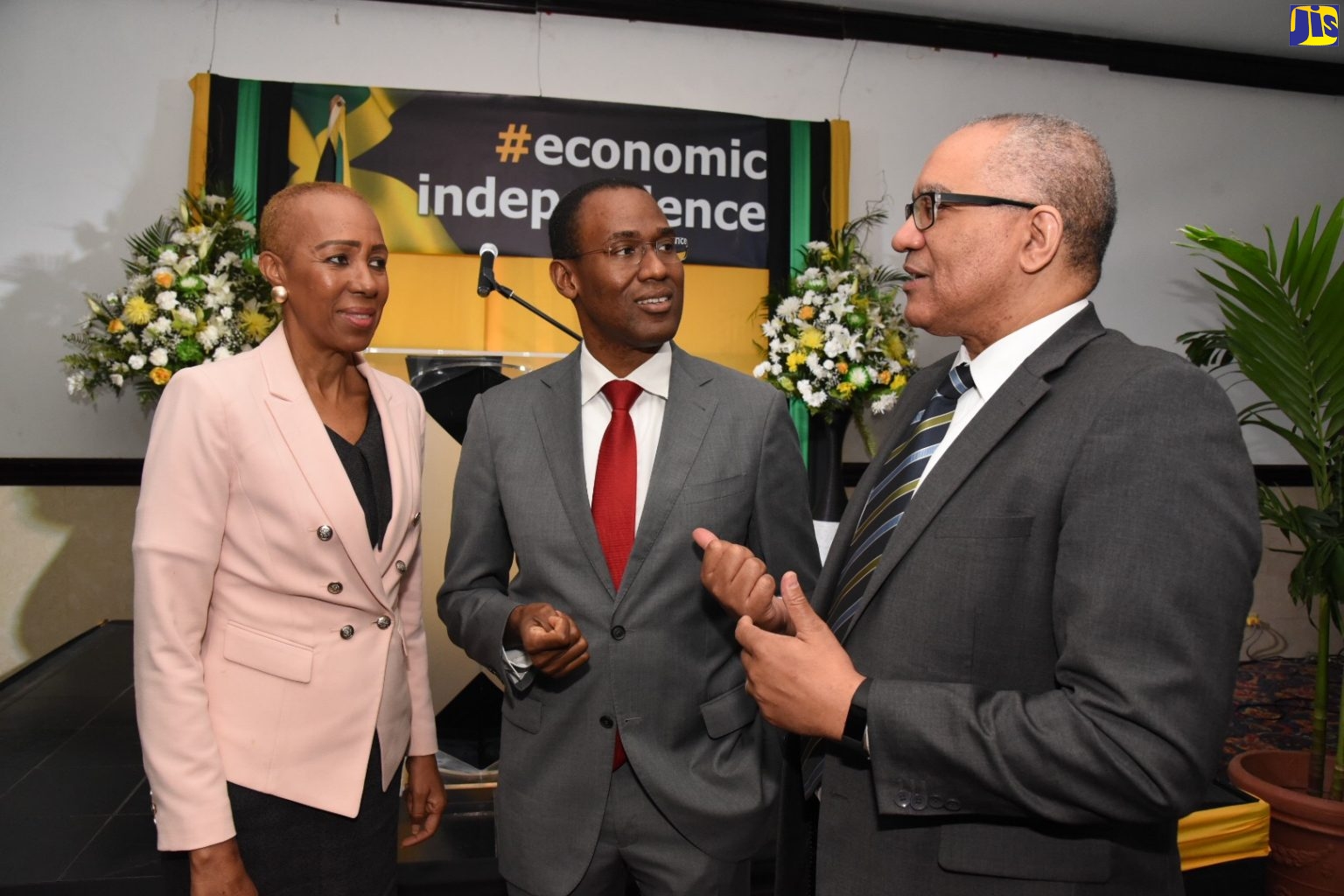Country Continues to Record Gains Through Economic Reform Programme
By: , January 25, 2019The Key Point:
The Facts
- Successful Reviews • Jamaica passed the International Monetary Fund’s (IMF) third and fourth biannual reviews under the US$1.66-billion Precautionary Stand-By Arrangement (PSBA). • Acting IMF Executive Board Chairman and Managing Director, Tao Zhang, and Mission Chief to Jamaica, Dr. Uma Ramakrishnan, noted that the ERP’s implementation remains strong and on track.
- Upgraded Global Ratings • International rating agency, Standard and Poor’s, improved its outlook for Jamaica from ‘Stable’ to ‘Positive’. • Another agency, Moody’s, affirmed the country’s rating at single ‘B’ and raised its outlook from ‘Stable’ to ‘Positive’.
The Full Story
Jamaica’s Economic Reform Programme (ERP) remains in good shape, consequent on notable gains and out-turns in 2018. These included:
• Better-than-targeted Central Government Primary Balance, at seven per cent, amounting to over $44 billion.
• First quarter fiscal year growth of 2.2 per cent, first quarter calendar year growth of 1.4 per cent, and third quarter calendar year growth of 1.8 per cent.
• Net International Reserves (NIR) totalling US$2.9 billion up to the end of November.
• Further reduction in the debt to under 100 per cent of gross domestic product (GDP).
• Inflation of 4.1 per cent up to the end of October.
• All-time record-low unemployment of 8.4 per cent.
Successful Reviews
• Jamaica passed the International Monetary Fund’s (IMF) third and fourth biannual reviews under the US$1.66-billion Precautionary Stand-By Arrangement (PSBA).
• Acting IMF Executive Board Chairman and Managing Director, Tao Zhang, and Mission Chief to Jamaica, Dr. Uma Ramakrishnan, noted that the ERP’s implementation remains strong and on track.

Upgraded Global Ratings
• International rating agency, Standard and Poor’s, improved its outlook for Jamaica from ‘Stable’ to ‘Positive’.
• Another agency, Moody’s, affirmed the country’s rating at single ‘B’ and raised its outlook from ‘Stable’ to ‘Positive’.
Multilateral Support
Jamaica continued to benefit from additional multilateral funding support:
• €9.17-million (US$10-million) European Union (EU) grant for the Energy Management and Efficiency Programme (EMEP).
• US$248-million Inter-American Development Bank (IDB) loan for the Public Sector Transformation Project, National Identification System (NIDS) and to further boost national security technology inputs.
• US$4.8-million World Bank grant to help vulnerable fishing and fish-farming communities adapt to climate change resilient practices.
• US$15-million World Bank loan to boost micro, small and medium-sized enterprise (MSME) financial support.

Budget
• The 2018/19 Estimates of Expenditure, totalling $773.6 billion, was tabled. The first Supplementary Estimates totalling $791.11 billion, which reflected a $17.42-billion increase, was tabled. No new revenue measures were implemented.
Tax Administration Jamaica (TAJ)
• Fiscal year revenue inflows up to the end of September stood at $153.1 billion, some two per cent above the $149.8-billion projection, and placing the TAJ on track to surpassing the $320.8-billion annual target.
Financial Oversight
• The framework facilitating the financial sector’s oversight by the Financial Regulatory Committee was strengthened under a Memorandum of Understanding signed by members.
Independent Fiscal Council
• Cabinet approved the establishment of an Independent Fiscal Council as part of measures to strengthen Jamaica’s Fiscal Responsibility Framework.
Public Investment Management System (PIMS)
• Over 100 projects have been submitted through the PIMS since its establishment in 2014. The web-based system screens project proposals from ministries, departments and agencies to ensure their feasibility and alignment with Jamaica’s development objectives.
Financial Stability
IMF Financial System Stability Assessment
• The International Monetary Fund’s 2018 Financial System Stability Assessment (FSSA) report for Jamaica underscored the importance of work being done to further strengthen and enhance the financial system’s regulatory framework and resiliency;
• This includes ongoing roll-out of risk-based supervision by the Bank of Jamaica and the Financial Services Commission, strengthening of the macro-prudential framework, and development of a special resolution regime for financial institutions.
The FSSA is the outcome of the Financial Sector Assessment Programme (FSAP) review conducted for Jamaica earlier in the year. An FSAP is a comprehensive and in-depth analysis of a country’s financial sector that is conducted jointly by the IMF and World Bank for all countries.
Medium-Term Socio-Economic Policy Framework (MTF)
• The fourth MTF under Vision 2030 Jamaica was completed. The three-year framework, covering 2018 to 2021, will consolidate the National Development Plan’s gains recorded in previous MTFs spanning 2009 to 2018.
National Disaster Risk Financing Policy
• Cabinet approved development of the Policy, which is expected to create greater transparency and efficiency in the mobilisation and execution of public expenditure for disaster risk management.
Chief Fiscal Advisor
• Deputy Secretary of the IMF, Jamaican, Calvin McDonald, who is on leave from the organisation, was appointed Chief Fiscal Advisor to the Minister. He has responsibility for advising on improvements to the Ministry’s macro-fiscal capacity, particularly in light of Jamaica’s expected graduation from a Fund programme relationship in 2019.
Financial Group
• A Financial Deepening Implementation Group has been appointed to spearhead engagements aimed at accelerating access to finance and creating investible assets; standardising asset quality for sound investments and reducing arbitrage; and increasing transparency and price discovery in markets.
Taxation Agreement
• Jamaica and the Republic of Italy signed an agreement for the elimination of double taxation with respect to taxes on income and the prevention of tax evasion and avoidance.
Investment Management Review Commission
• An Investment Management Review Commission was established to review the National Insurance Fund (NIF) Investment Management Governance Framework, benchmarked against international best practices for State pension funds.
The Commission, which comprises persons from various backgrounds and expertise, will provide advice that ensures the NIF benefits from international best practices of fund management regarding disclosure, diversification, asset allocation, governance and investment management practices.




